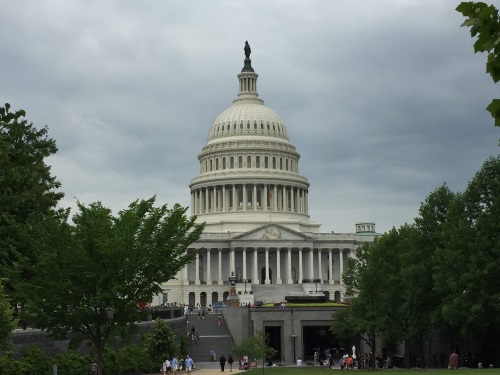A legislative effort to transition federal transportation fuel standards from current “blend-specific” mandates to “performance-based” standards for so-called “renewable fuels” and the vehicles that use them sparked debate during a Dec. 11 hearing before the House of Representatives Committee for Energy and Commerce.

The hearing focused on a “discussion draft” released Nov. 21 called the 21st Century Transportation Fuels Act. Co-sponsored by Rep. John Shimkus, R-Ill., and Rep. Bill Flores, R-Texas, the bill seeks to “remove long-standing barriers” to the availability and usability of higher ethanol blends, provide an additional decade of certainty for advanced biofuels, and “harmonize” vehicle efficiency programs between the Environmental Protection Agency and the U.S. Department of Transportation.
“Rather than looking at individual federal transportation fuel policies on their own, the draft 21st Century Transportation Fuels Act takes a wider view of those policies and considers how they might work together to bring more value to consumers and more certainty to stakeholders,” Rep. Shimkus said in his opening remarks.
“Stakeholders on all sides of this debate have been whipsawed for months by rumored and actual administrative actions, and that uncertainty will only increase after 2022 when EPA receives even broader discretion to set biofuel blending requirements,” he said. “In fact, given EIA projections of declining liquid transportation fuel demand, it’s difficult to envision a post-2022 scenario in which biofuel volumes would not actually be lower than they are today.”

Kurt Kovarik, vice president of federal affairs for the National Biodiesel Board, took issue with the legislation in his testimony, noting it would “direct EPA to set backward-looking volume requirements [which] may protect existing assets but not drive investment and further growth.”
He added that the 21st Century Transportation Fuels Act “proposes to abruptly end its support for biodiesel production in 2032, while the current RFS [renewable fuel standard] continues beyond that.”
Steve Zimmer, executive director of the United States Council for Automotive Research, added in his written remarks that while the discussion draft is a “great milestone” and an “excellent example” of a more “integrated approach” between energy and mobility needs, a provision that allows for gasoline with up to a 20 percent ethanol content conflicts with current U.S. car fleet warranties that cover blended fuels with only between 10 percent and 15 percent ethanol content.

“Our member companies are also concerned about the discussion draft’s vehicle design requirement that states automakers shall improve fuel economy connected to the use of gasoline that has a research octane number of 95 or higher,” he said. “Automakers are continuously
improving efficiency and fuel economy to meet customer demand and regulatory requirements [so] this vague requirement in addition to existing regulation is therefore unnecessary.”
Yet Rep. Greg Walden, R-Ore., chairman of the Energy and Commerce Subcommittee on Environment, stressed in his remarks that “liquid fuel powered motor vehicles are expected to be the dominant type of vehicle used by Americans for decades to come and that no one knows what is going to happen regarding our nation’s renewable fuel mix beginning in 2023 – which is why this draft is so important.”

He believes that by “transitioning” near-term to higher octane fuel blends and vehicles – whose engines are designed to maximize fuel efficiency – “we can both incorporate more renewable liquid fuels into the fuel supply” while also increasing vehicle fuel economy.
“To me, the bottom line is that new fuels and vehicles must first and foremost deliver benefits while improving our environment,” Rep. Walden stressed.
“I know some folks will want to discuss electric vehicles in conjunction with this bill … but liquid fuels for motor vehicles and the looming questions arising in 2023 make the most sense to tackle right now,” he added. “As things stand right now, I have great concerns about the viability of EV’s in meeting the needs of rural America, not to mention range and price issues that make EVs unrealistic for many Americans today, even as new innovations make their use more and more reasonable for many in our urban and suburban areas.”



